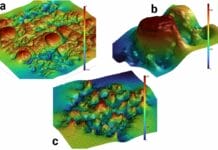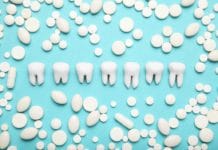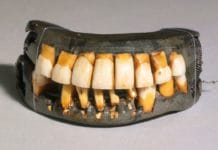The composition of bacteria in our mouths, collectively known as the oral microbiome, is significantly influenced by the foods we consume regularly. Researchers are uncovering that the oral microbiome plays a pivotal role in our overall health beyond its previously known associations with dental caries and periodontal disease.
A recent study conducted by scientists from the University at Buffalo investigated how specific dietary choices affect the oral microbiome of postmenopausal women. Their findings suggest that higher consumption of sugary and high glycemic load foods may potentially impact both oral and systemic health outcomes in older women due to their influence on the oral microbiome. This study is unique because it exclusively focuses on postmenopausal women and analyzes subgingival biofilm samples rather than salivary bacteria.1,2
The Study
This research, published in Scientific Reports, explores the relationship between carbohydrate and sucrose intake and the diversity and composition of oral bacteria in a group of 1,204 postmenopausal women, using data from the Women’s Health Initiative.1
Eligibility criteria excluded women with less than six teeth, those who had undergone bilateral hip replacements, had a history of bone diseases other than osteoporosis, had been diagnosed with cancer in the past decade, or were undergoing treatment for severe illnesses.1
Out of 1,222 women who had both subgingival microbiome sequences and dietary information available at the start of the study, 18 were removed from the sample due to reporting daily energy intakes outside the 600 to 5,000 kcal range, resulting in a cohort of 1,204 women.1
Dr. Amy Millen, the study’s first author, emphasizes the importance of this approach, explaining that oral bacteria related to periodontal disease primarily reside in subgingival biofilm. Examining salivary bacteria alone may not provide a complete understanding of how oral bacteria contribute to periodontal disease.2
The Results
The research team discovered positive associations between total carbohydrates, glycemic load, and sucrose with Streptococcus mutans, a contributor to dental caries and certain cardiovascular diseases, corroborating previous findings. Additionally, they identified associations between carbohydrates and the oral microbiome that are not well-documented. Notably, Leptotrichia spp., linked to gingivitis, was positively associated with sugar intake.1
The connection between carbohydrate consumption and periodontal disease, as opposed to dental caries, has not been as extensively researched. However, there is evidence suggesting that higher carbohydrate intake correlates with increased gingival bleeding and a higher prevalence of periodontal disease.1
Conversely, studies have shown that fiber intake may reduce the risk of progressing periodontal disease. Previous research comparing the oral microbiomes of mice fed diets with sugar and fiber to those fed only sugar showed lower levels of certain bacteria like Streptococcus and higher microbial diversity in the former group, suggesting that fiber might disrupt the oral microbiome physically. However, the current study of postmenopausal women who generally maintain good oral hygiene displayed no significant differences in microbial diversity or bacterial abundance based on fiber consumption.1
Conclusion
Dr. Millen elaborates on their approach, saying, “We examined these bacteria in relation to usual carbohydrate consumption in postmenopausal women across a wide variety of carbohydrate types, including total carbohydrate intake, fiber intake, disaccharide intake, and simple sugar intake. No other study had examined the oral bacteria in relation to such a broad array of carbohydrate types in one cohort. We also looked at associations with glycemic load, which is not well studied in relation to the oral microbiome.”2
The critical question now is understanding the broader implications for overall health, a complex puzzle that requires further exploration. As more studies investigate the oral microbiome using similar sequencing techniques and track the progression of periodontal disease over time, we may gain better insights into how diet influences the oral microbiome and its impact on periodontal health.
Before you leave, check out the Today’s RDH self-study CE courses. All courses are peer-reviewed and non-sponsored to focus solely on high-quality education. Click here now.
Listen to the Today’s RDH Dental Hygiene Podcast Below:
References
- Millen, A.E., Dahhan, R., Freudenheim, J.L., et al. Dietary Carbohydrate Intake Is Associated with the Subgingival Plaque Oral Microbiome Abundance and Diversity in a Cohort of Postmenopausal Women. Scientific Reports. 2022; 12(1): 2643. https://doi.org/10.1038/s41598-022-06421-2
- University at Buffalo. (2022, April 5). Carbs, Sugary Foods may Influence Poor Oral Health. ScienceDaily. www.sciencedaily.com/releases/2022/04/220405102825.htm











